
views
What should I do if I have no sex drive?

See if there’s a medical explanation for your low sex drive. Low libido can be caused by just about everything under the sun—we’re talking stress, depression, chronic health conditions, certain medications… and the list goes on. Meeting with a doctor can help you identify any possible medical causes of your low sex drive, so you can address and treat it efficiently. Low libido can be caused by other non medical issues, like unresolved emotional trauma and pre-existing relationship issues, but it can help to rule out any medical causes, too.

Jot down your thoughts and feelings regarding sex and your relationship. Self-reflect on how you feel about spending time with your partner. Do you feel fulfilled and enriched by the time you spend together? Are there aspects of the relationship that really drain you, or perhaps make you less interested in sex? Performing a mental self-inventory can help you feel more in-tune with your attitudes and feelings around intimacy. Try to brainstorm other factors that could be interfering with your sex drive, like your daily schedule, mental health, and emotional well-being. All of these things could play a role in how you approach intimacy with your partner.

Talk with your partner about what’s going on. Communication is key to navigating all types of difficulties in a relationship—and intimacy issues are no exception. Creating an open and honest dialogue with your partner can help you both vocalize your needs and wants within the relationship. This can be a tough conversation (especially if low libido is a point of contention in your relationship), so approach your chat with strategies like: Offering open-ended questions (What steps can we take to address this problem?) Not trying to guess what they’re thinking/feeling Using “I” statements to focus on your feelings without assigning blame (“I feel…”)
Medical Causes of Low Sex Drive

Stress Stress and libido are like oil and water: they just don’t mix. If you feel stressed a lot, it could actually have a negative impact on your hormones, which doesn’t bode well for your sex drive. Besides, if your mind is consumed with different stressors, you probably won’t be super focused on getting intimate with your partner. Here are a few tips to help relieve some of your stress: Exercise regularly Eat healthy Practice meditation Practice gratitude Vent to a friend

Fatigue & sickness If you spend a lot of energy providing for your family, you may not have the energy or sex drive to get intimate. The same goes for if you’re sick—your energy levels and libido might not be where you want them to be. Make sure that you’re getting plenty of rest each night. Health experts recommend getting at least 7 hours of sleep if you’re an adult, and at least 8 hours if you’re a teen.

Depression & anxiety Mental health challenges like depression and anxiety can unfortunately take a toll on your libido. Both depression and anxiety disorders negatively interact with your brain chemistry, which affects your sex drive by extension. Wondering if you could be struggling with depression or anxiety? Check out wikiHow’s Depression Test and Anxiety Test for more info.
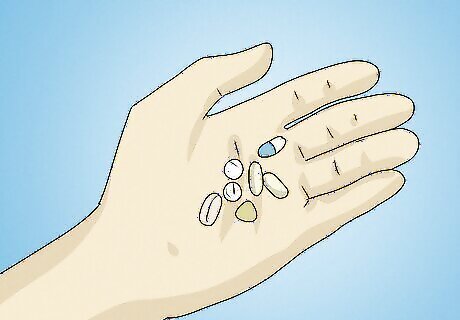
Medications Believe it or not, certain medications can impact your sex drive, including birth control, antidepressants, and blood pressure medication. Chat with your doctor to make sure your current medical regimen isn’t interfering with your libido.

Tobacco & alcohol Recreational drugs, like alcohol and tobacco, can have a negative impact on your libido overall. For guys/people assigned male at birth specifically, smoking tobacco can impact your testosterone levels. If you smoke, drink, or use recreational drugs frequently, think about cutting back.

Getting older For better or for worse, losing sex drive is a natural part of getting older, especially when you start moving past your 40s and 50s. Men/people assigned male at birth naturally lose their testosterone levels as they age, while women/people assigned female at birth experience decreased sex drive after menopause.

Past trauma Past experiences can play a big role in how you interpret sexual encounters and scenarios, even if they’re with someone you trust. If you have bad memories surrounding sex or intimacy, they could be contributing to your low libido. If you’re having trouble letting go of a past trauma, you have nothing to be ashamed of. Meeting with a licensed mental health professional can be a helpful way to address your past in a safe and supportive environment.

Hypoactive Sexual Desire Disorder (HSDD) HSDD is the clinical name for having a low or nonexistent sex drive. Plenty of people have experienced it at one point or another, and it can be addressed with certain strategies, like: Masturbating Finding stimulating porn Having open communication with your partner Doing Kegel exercises
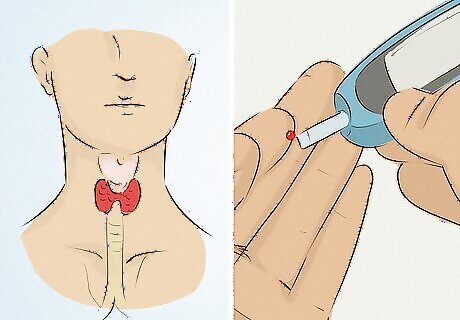
Long-term health conditions A variety of long-term health conditions can contribute to a lower sex drive, including: Diabetes Hypothyroidism Rheumatoid arthritis Long-term pain Chronic kidney disease Cancer

Low testosterone Some men have a condition known as male hypogonadism, where their testicles aren’t able to create the normal amount of testosterone. This condition isn’t age-specific. There are injections, gels, patches, and other treatments available that can help with low testosterone. Talk with your doctor to see if you could be a candidate.
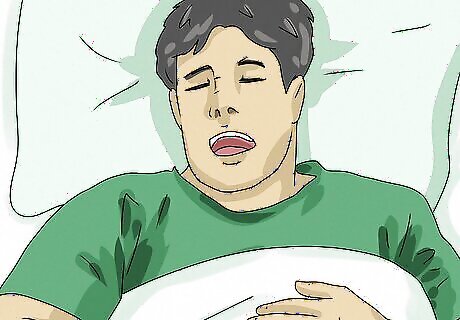
Obstructive sleep apnea Obstructive sleep apnea is a condition that causes people to breathe inconsistently when they sleep. In men, this condition can lead to low testosterone levels, which may impact libido. If you have sleep apnea, talk to your doctor about trying a CPAP mask.
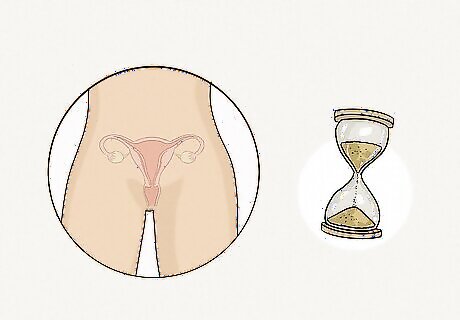
Menopause Menopause (a state in a person’s life when they no longer have periods) seriously influences your hormones; specifically, your estrogen levels. This, in turn, can lower your sex drive (and even make sex a little more painful). Tip: Using lubrication can help if you’re experiencing sexual pain caused by vaginal dryness.

Pregnancy & breastfeeding Major life changes like pregnancy and breastfeeding can seriously influence your hormone levels—and, consequently, your sex drive.

Hysterectomy complications A hysterectomy is the surgical removal of a person’s uterus. While people can have perfectly normal sex lives after a hysterectomy, there’s a change of experiencing low libido after the fact. If you’re concerned about any possible hysterectomy side effects, contact your doctor right away.

Anxiety surrounding sex There are several stressors connected with sex, like getting off too early or being unable to “perform” well. These types of worries may bleed into a person’s sex drive overall.
Relationship Causes of Low Sex Drive

Poor communication Communication is the bread and butter of any relationship—it’s how you and your partner stay on the same page and up-to-date with one another’s lives. When communication starts to suffer, it’s only a matter of time before your intimacy starts to suffer, too.

Incompatible interests People have different kinks and preferences when it comes to sex, which is completely valid. Unfortunately, this can create something of a roadblock in a relationship when two partners are clashing on their sexual preferences and desires.

Unresolved conflict Intimacy is all about leaning into and celebrating the close bond you have with your partner. If something gets in the way of that bond, like long-term tension or unresolved arguments, your intimacy and sex life could be negatively impacted. In some cases, a partner might purposefully refuse to have sex as a way to spite their partner.

Cheating Cheating in any form is a huge breach of trust that can put a serious strain on a relationship. In the aftermath of the infidelity, the partner who was cheated on may (understandably) not feel like getting intimate.

Busy work schedules When both you and your partner are managing busy schedules, it can be hard to schedule quality time and intimacy. This is especially true when one partner has to travel or be away from home for work.
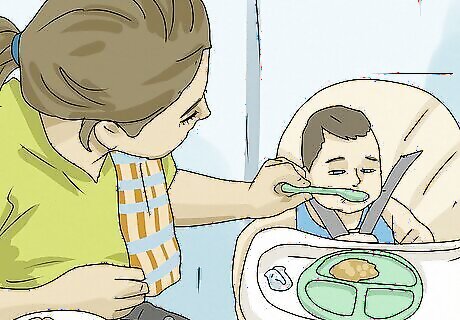
Having a family Being a parent is an incredibly busy and demanding task, and it’s understandable if you’re struggling to make time for intimacy in the middle of it all. When kids take up your time 24/7, when are you supposed to find time for your partner?

Pornography Pornography creates an unrealistic fantasy when it comes to sex—one that can’t be replicated in real life. Because of this, people who watch porn too much might have trouble maintaining sex drive in real-life scenarios when reality doesn’t live up to their expectations. In some cases, those individuals might not even recognize a moment of real intimacy or know what they should be doing. If you’re worried you might be struggling with a porn addiction, help is available. Licensed counselors can help you tackle your addiction head-on.
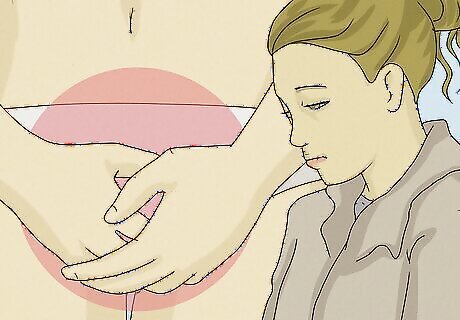
Abuse Any instance of abuse or an unhealthy power dynamic can seriously impact the level of intimacy within a relationship. If you’re currently a victim of abuse, you aren’t alone—there are plenty of resources and safety tips available to help you escape an unhealthy relationship.
Relationship Fixes for Low Sex Drive

Make communication a priority in your relationship. Set aside time when both you and your partner can comfortably share your thoughts and concerns regarding intimacy. Share what’s on your mind, and then give your partner the floor to air out what’s bothering them, too. Do your best to listen quietly and respectfully while they talk, without any interruptions. Try using “I” statements to express how you’re feeling, like “I haven’t had the energy to be intimate lately.” These types of sentences allow you to own your experiences rather than casting the blame onto your partner. Actively listen to your partner when they share their thoughts and feelings. Communication is a two-way street, after all! Make an effort to empathize with your partner’s experiences and feelings, even if they’re different from your own.

Approach intimacy at your own pace. There’s no one-size-fits-all solution when it comes to a couple’s sex life, but there are a few tried-and-true strategies that might help: Remove sex from the equation temporarily in your relationship. Instead, focus on building on non-sexual intimacy (e.g., kissing, snuggling, etc.) without the expectation that it will lead into something more. Gradually add more intimacy to your relationship at a pace that makes sense to you and your partner. Experiment with acts that are partially sexually intimate (like oral sex) without going “all the way.”

Make intentional time for one another. Set aside time throughout the week for “date nights” or other meaningful moments together. If possible, try to get in the habit of spending regular, intentional time together to help boost your intimacy. Even small gestures, like asking about each other’s days, can make a big difference. Your “dates” together don’t have to be anything super fancy, as long as they’re meaningful and special to you. One couple might enjoy a night out on the town, while another might enjoy a cozy night in watching movies.

Meet with a couples’ therapist. Relationship counselors are trained to help couples navigate difficult challenges (like intimacy issues) in a safe, non-judgmental environment. If you and your partner could use a little extra support as you find your way back to one another, consider scheduling an appointment with a couples’ therapist. You might also consider seeing a sex therapist, who is professionally trained to help people navigate sex-related challenges.
Key Takeaway

Low libido can be frustrating, but it doesn’t have to be a dealbreaker. Yes, there are a lot of potential causes for a low sex drive, both medical and nonmedical—but with the help of both your doctor and your partner, you can overcome them as you seek out the fulfilling intimacy you deserve. Be patient with both yourself and your partner as you navigate this chapter of your relationship.

















Comments
0 comment